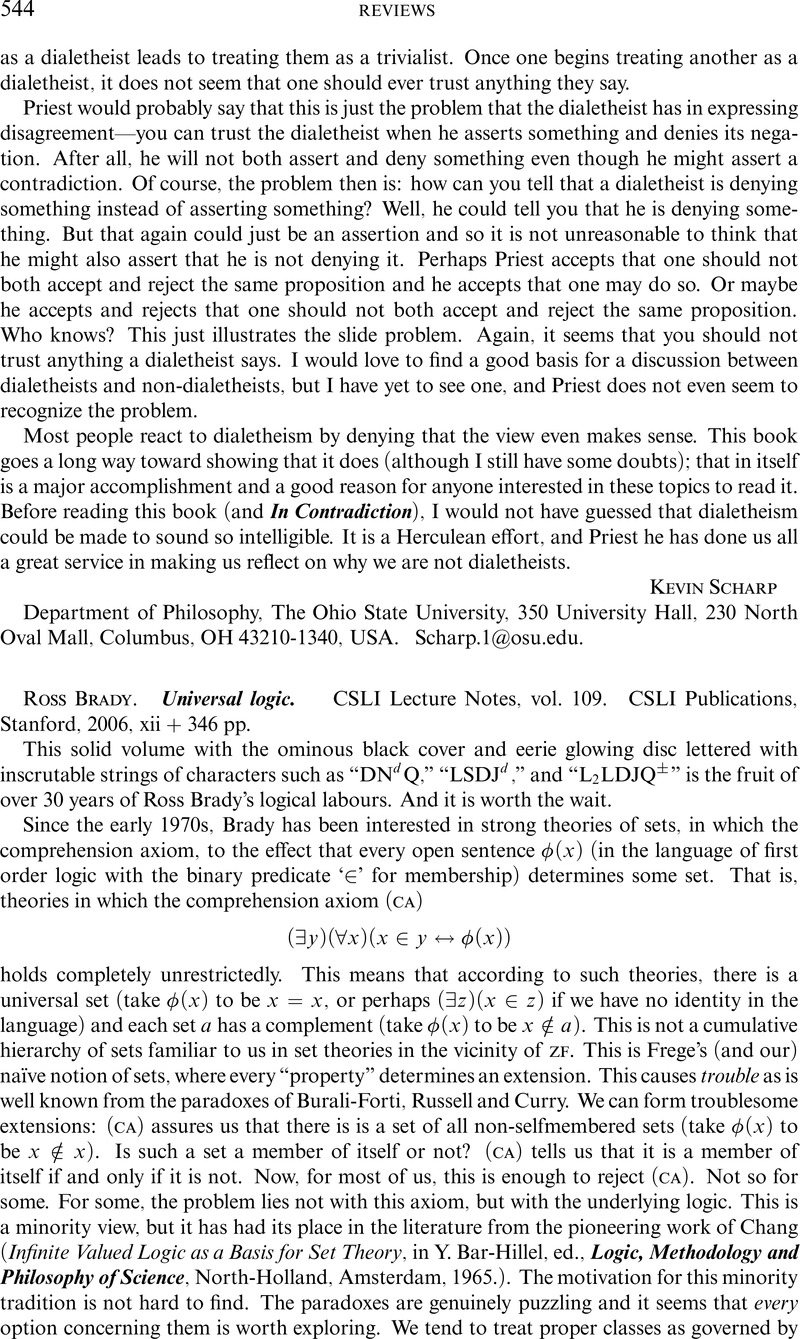Crossref Citations
This article has been cited by the following publications. This list is generated based on data provided by Crossref.
Brady, Ross T.
and
Meinander, Andrea
2013.
Paraconsistency: Logic and Applications.
p.
223.
Rosenblatt, Lucas
2021.
On structural contraction and why it fails.
Synthese,
Vol. 198,
Issue. 3,
p.
2695.





